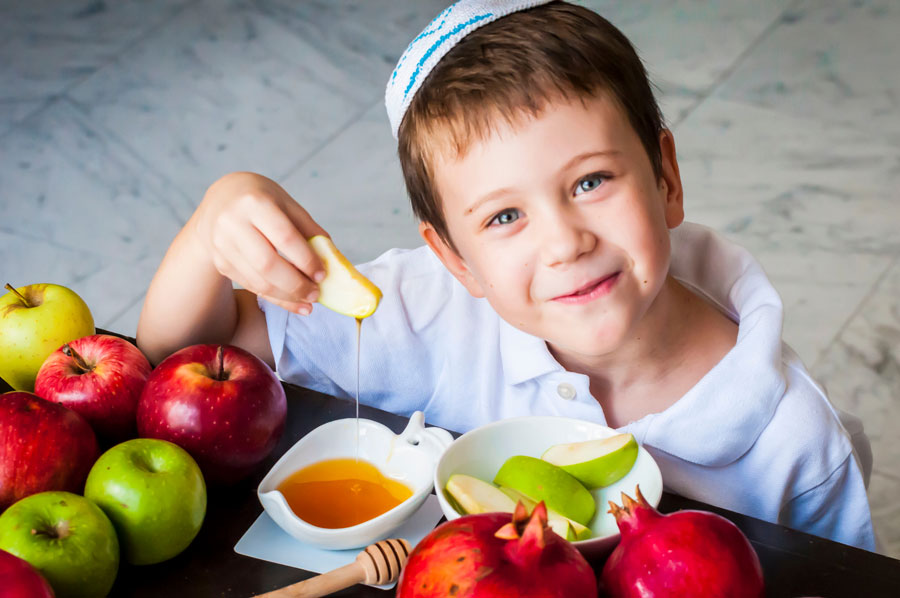The two Jewish High Holy Days are coming up in the fall. Yom Kippur falls on October 4th and 5th, and beginning on September 25th is Rosh Hashanah. Also known as Yom Teruah (“day of shouting” or “day of blasting” in Hebrew), it marks the new year of the Jewish calendar.
Rosh Hashanah (“head of the year”) begins at sundown on Sunday, September 25th, and ends at sundown on September 27th. The Jewish calendar runs on the cycles of the sun and moon, and new days traditionally begin at sundown. As such, the exact dates of each holiday on the Gregorian calendar are different every year, but Rosh Hashanah typically falls in late September or early October.

Rosh Hashanah is a holiday all about new beginnings: anticipation of good things in the year ahead and commemorating the birth of the world. It begins the 10 Days of Awe acknowledging God’s creation and judgment of humankind and connecting Rosh Hashanah to Yom Kippur, the day of atonement. Observers devote time to perform good deeds and charity, reflect on their own wrongdoings, and find ways to improve themselves moving forward. Teshuvah (“repentance” or “return”) is carried out through this introspection, prayer, and amends made to those you have hurt.
An important part of Rosh Hashanah is attending High Holy Day services in the mornings, where the shofar, an instrument marking celebration and a return to God, is blown. Some synagogues will livestream services for those unable to attend in person.

Observers can also attend a Tashlich service, in which bread crumbs are thrown on a body of water to symbolize casting off sin, light candles in the home, and wear new clothing on this holiday. The traditional Rosh Hashanah greeting is “l’shanah tovah” or “shanah tovah,” meaning “Good year!”
As with many holidays, it’s also customary to eat sweet, hearty meals with family, usually including foods like challah bread, honey, apples, and pomegranates. Eating fruit you’ve ever tried before after saying a shehecheyanu blessing over it celebrates new beginnings for you.
Rosh Hashanah is not a federal holiday, but since observers are not permitted to work on this holiday, they may request time off of work or classes. Some educational institutions may cancel classes in recognition of the holiday and their students’ needs. You can expect stores, government institutions, and transportation to be operating under normal hours.
If you have any questions or concerns, please feel free to contact us at info@gravityintprog.com. Stay safe and healthy!






